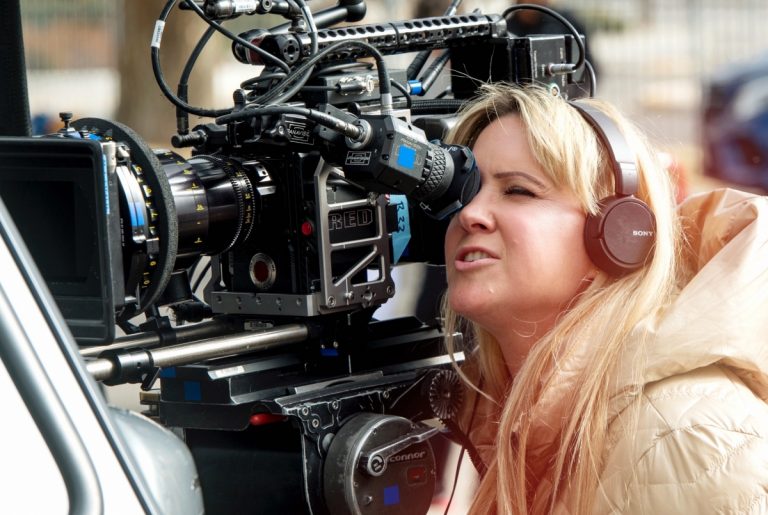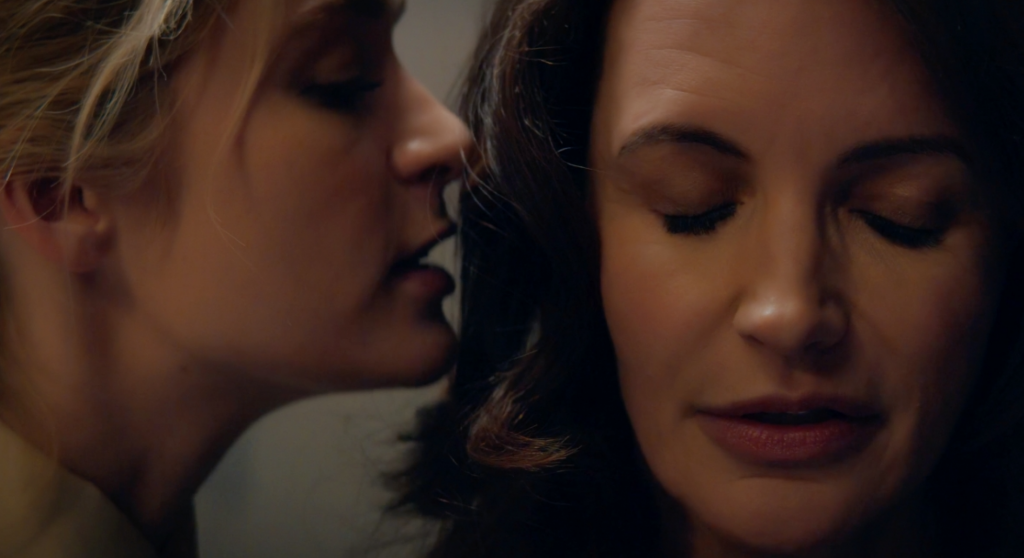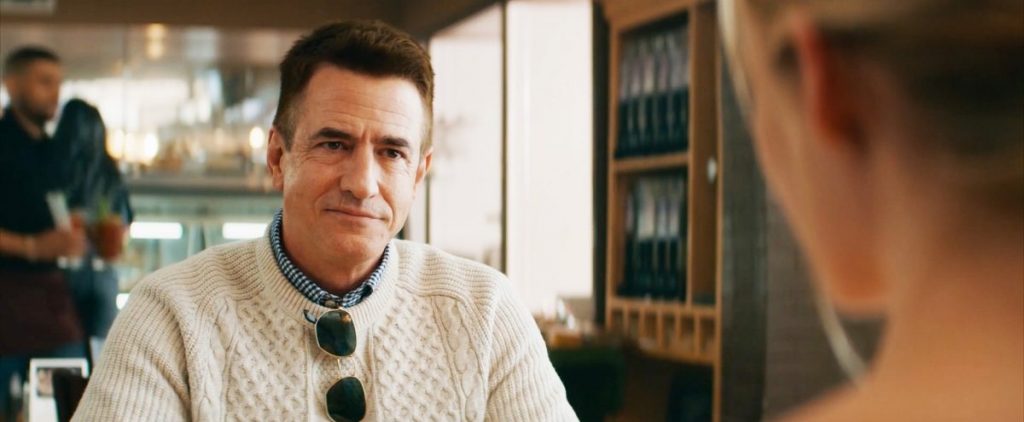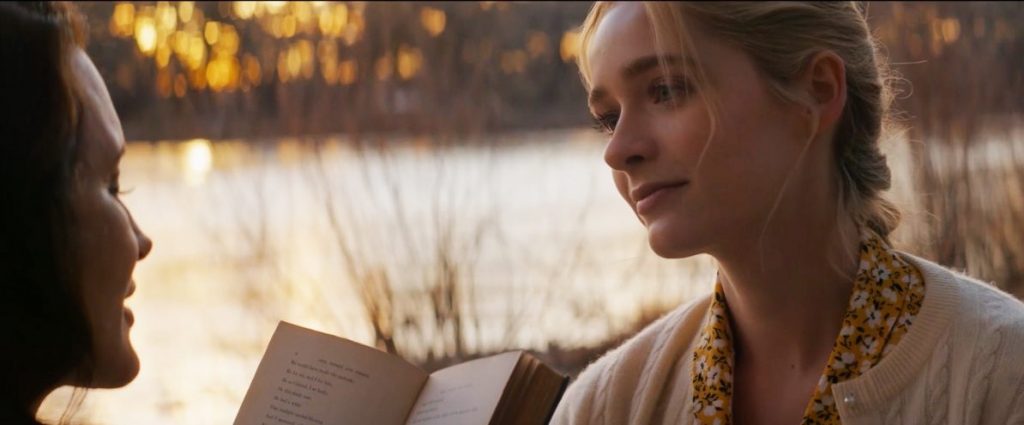
Creating stories that are based on personal experiences often times create the most gripping, intriguing characters and plotlines that audiences truly want to indulge in. That’s certainly the case for the characters in the latest drama from filmmaker Anna Elizabeth James, Deadly Illusions. The new movie from the writer-director-producer, who first rose to fame with the 2016 family drama, Emma’s Chance, is proving her versatility as a filmmaker with her latest feature, which is completely different in tone.
Deadly Illusions is an erotic thriller that stars Kristin Davis as a bestselling author, mother and wife who decides to add excitement and intrigue to both her career and personal life by forming an intimate relationship with her children’s new nanny, who’s played by Greer Grammer. While the new close bond between the two women helps inspire the writer to create her next masterpiece, she never could have imagined how their growing connection could also cause a lasting rift in her marriage that may never be able to repaired.
Deadly Illusions follows novelist Mary Morrison (Davis), who’s suffering from writer’s block, and is having trouble finding inspiration for the next installment in her popular book series. So she decides to hire a seemingly innocent, yet equally beautiful and intriguing, caregiver, Grace (Grammer) to watch her two children as she dangerously indulges into the fantasies of her potential new hit novel.
Everything changes when Mary becomes spellbound by Grace, who soon becomes her professional and personal muse, despite the fact that the acclaimed author is married to the father of her children, Tom (Dermot Mulroney). As the relationship between the two women blossoms, the line between the life Mary’s writing about and the one she’s living becomes blurred.
James generously took the time recently to talk over the phone about writing, directing and producing the film. Dark Star Pictures will distribute the drama tomorrow, June 1, on iTunes, Amazon, Google Play, Vudu, Fandango Now, YouTube and Dish Network, as well as through local cable providers.
Q: You wrote the script for the new thriller, Deadly Illusions. What was the inspiration in penning the screenplay, and what was the scribing process like for the movie?
AEJ: The idea actually came to me after I had worked with Greer Grammer on our first film together, which was also my first feature film, Emma’s Chance. It’s a nice, sweet family film, and it’s something I’m really proud of overall.
After we wrapped principal photography on that film, which was a very strenuous, arduous shoot, I was back at home when this imagery just hit my mind when I was coming out of the shower. I imagined a young woman who’s working with children, and the way she’s dressed is sweet and innocent. But at the same time, it’s also secretly seductive.
I saw Greer in that capacity. After having just worked with her on Emma’s Chance, I thought she’s this amazing young actress. So I wondered if I could work with her again, and if so, in what capacity it would be.
Then this imagery came into my mind. I thought, this is strange; we’ve seen a lot of movies like this, such as The Hand That Rocks the Cradle, but I had just brushed them away, and didn’t think about it for awhile.
But then it kept coming back to me over the next year or two. I would try to articulate or pitch it, and I had this vibe and tone in my mind that was attached to this idea. At the time, I didn’t realize what I know now; I thought it was an erotic thriller that was peculating, but now I understand more about the genre. So I realized that it’s actually a psycho-sexual thriller.
I was then working on my second feature, and Greer and I kept in touch. I said, “Greer, I would love to meet up with you. I have an idea that I’ve been toying around with in m head, and I don’ know if it’s a good idea and something we should consider. But I’d love to at least pitch it and get your thoughts.”
So we meet for coffee and I pitched her the story and every scene from the beginning to the end, and she loved it. She liked it so much that her enthusiasm made me realize, now I have to write this!
So getting that feedback from her was really helpful to me. When you have an artist like that, who you’re excited to work with, you’re more motivated to work.
Q: Besides writing the script, you also directed the drama. How did working on the screenplay influence your helming style on the set?
AEJ: I think when people are able to direct what they have written, the directing comes a lot easier. When I write a script, I actually write it in a way that I see the shots; I literally write a shot list of a script. So I really do that visual work while I’m writing. But as a director, if I’m approached with a script that I didn’t write, I’d still do that work, but it would be reverse engineering.
So when we showed up on set on day one, I knew exactly what I wanted and what we needed to achieve every day. So I never had hesitation on the decisions that I was making creatively.
The only thing that was really hard was that we had a 17-day shoot and a micro-budget. We thought we were making this small arthouse independent film. So it’s amazing how it turned out, and how it was then picked up by Netflix.
But at the time, the struggle was if we could get all the shots every day, because the schedule was so tight, and the budget was so small. That’s really the hardest feat for a filmmaker to overcome.

Q: Earlier, you mentioned the process of bringing Greer on board to play Grace in Deadly Illusions, which also stars Kristin Davis and Dermot Mulroney. What was the casting process like for the rest of the actors?
AEJ: I got so lucky with this cast. Kristin Davis is such an enigmatic. vivacious, smart and savvy person. She knows her craft so well, and is so full of wisdom. So having the opportunity to work with an actress like her as your lead is amazing.
Also getting Dermot after she signed on makes you realize that they’re coming to the table with so much experience. As a director who’s only made a few films, I could really lean on them and their instincts and intuitions.
We all knew the movie we were making. So I put a letter in the front of the script to really explain the reasons why I wanted to make such a sexually-charged piece of material from the female gaze.
I wanted to challenge things, and see if we could make something that’s tantalizing, but in a way that less is more. I also wanted to show that your imagination takes over when you show less, and that the cerebral ride can be as, or even more, fun than things that are right in your face.
That was the reasoning behind making this movie for me. So when everyone came to set and we started shooting the scenes, I feel like there was such a clarity of what we were doing and why we were doing it.
Also, we wanted to make something fun. We haven’t seen a movie in the psycho-sexual thriller genre in awhile, so I wanted to make one that fits into that archetype.
I spent my adolescence reading Christopher Pike novels, which are psycho-sexual angst thrillers. I loved those, but secretly read them because I thought I was reading something I shouldn’t be reading. But they’re sort of addictive, in a way, so I think my inner teenage self was longing for that kind of material.
I wanted to create something that I wanted to see. I think our actors, as well as our crew members, were under the same feeling, as well, which is why I think they all signed on. We all knew what kind of movie we were making.
Q: Once the actors were cast, what was the process like of working with them to build their characters’ relationships and emotions?
AEJ: Once Kristin signed on, the number one thing I needed to do was storyboard the intimacy scenes because we wanted to have clarity of what was going to be shown, and how we were going to do it. I can’t drawn (James laughs), but did the best I could. I sent out those storyboards as part of the legalities that you have to go through when filming so much intimacy.
So there was a lot of communication on that, and there were notes on those storyboards here and there, but nothing too crazy. It was great having that open communication with the cast.
We also had an intimacy coordinator, which is a new role in our industry. The fabulous intimacy coordinator we had in New Mexico was trained by the DGA (Directors Guild of America), and she was so good. She has these tactics and ways of working with the actors, and setting them up for success, much like a stunt person prepares a stunt team.
There are tricks you can do for scenes with sexuality, so having her there helped Greer feel really secure in that regard. Obviously, Dermont and Kristin are seasoned, so they wanted Greer to feel safe in that way. So I tried my best to keep open communication, and be as transparent and honest as possible during pre-production.

Q: A majority of Deadly Illusions is set in and around the Morrisons’ home, and was shot in Albuquerque, New Mexico, like you just mentioned. What was the process like of deciding where you would shoot the film?
AEJ: I actually live in Utah, after living in L.A. for 10 years. I’ve been in Utah for three years, and am a mom of four, so life is simpler out here for me.
I always had this grand intention and plan to shoot films here in Utah, as it’s a beautiful state, and there’s also a great well of talent here. But when I submitted the script to receive the tax incentive here, I was actually rejected by the (Utah Film) Commission because the material was too scandalous, even though I said I wasn’t going to show anything in that way. It was a huge bummer, but then I had to consider where else I could shoot.
I got so much feedback that New Mexico is a really great hub (for filmmaking). So I flew down there and got my bearings, and found an incredible well of talent. Everyone there just wrapped their arms around the project, and we were able to recruit some of the best talent.
Our crew has worked on a lot of huge Netflix movies, so they were so excited to have a small, independent film come around. At that time, we weren’t picked up by Netflix yet, or had even thought about being on that platform.
I loved shooting in New Mexico, as well as the talent we got down there. All of the other parts were fulfilled down in New Mexico by local talent, and I can’t say enough good things about the talent we got down there.
Q: In addition to penning and directing the thriller, you also served as a producer. Why did you decide to also produce the movie, and how did you balance your helming and producing the drama?
AEJ: I never intended on producing the film. I took it out to some of my co-horts, and people I trusted in town. They were either busy on other projects, or the material just wasn’t up their alley.
So the further I went down the line, the more talent we had attached, and the more money we had in. We had to get the rest of the money in, so I was sure that we would get producers on board. But time was running out, and we had to start the shoot.
So I ended up being the only producer, which is something I don’t recommend. But I also wanted to save the production money, so at the time, I didn’t take a producing fee, and was only paid to write and direct the film. I thought it would be better to save that money for the screen, which I’m really glad I did.
But it was really hard. One of the things I was really concerned about was making sure that we got all of our investors’ money back, and part of that is finding a sales agent. We were approached by a few sales agents while we were filming, and some of the deals were just not what I thought we were worth; I thought, we can do better than this.
So juggling that business side with the creative side was difficult. I would come home at the end of the night after shooting and analyze all of those emails. That was exhausting, and I don’t recommend it! (Jams laughs.)
But in the end, I’m glad we held out because then in April of 2020, which is when COVID first really hit, we were approached by various companies. Before the lockdown started, we had a showing in Hollywood at Light Iron as an early pre-screening of the movie.
During that screening, we had a lot of sales agents show up, and the following week, we were giving a great offer by Voltage. So we signed with them in April, and we then finished the final version of the film by June. Then by July, Voltage had sold the rights to Netflix.

Q: Speaking of the distribution, in addition to currently streaming on Netflix and playing in select theaters early this year, Deadly Illusions is also being released on several additional streaming platforms, as well as through local cable providers, early next month. Why do you feel the digital distribution is beneficial for this type of film?
AEJ: I think every filmmaker would love to have a large theatrical release, and hopefully one day I’ll get to have that. With where we’re at with in the pandemic, and everyone being stuck at home, to be released by Netflix, which is the largest streaming platform on the planet, is a huge deal.
I was flabbergasted that they picked us up, as I thought this was going to be a small arthouse film that would go to festivals. So to instead be thrust into the world on this platform was a fun and wild ride. At the end of the day, as a filmmaker, you want people to be talking about your content, so having this movie premiere on Netflix was an amazing opportunity.
Here’ the trailer of the film.

